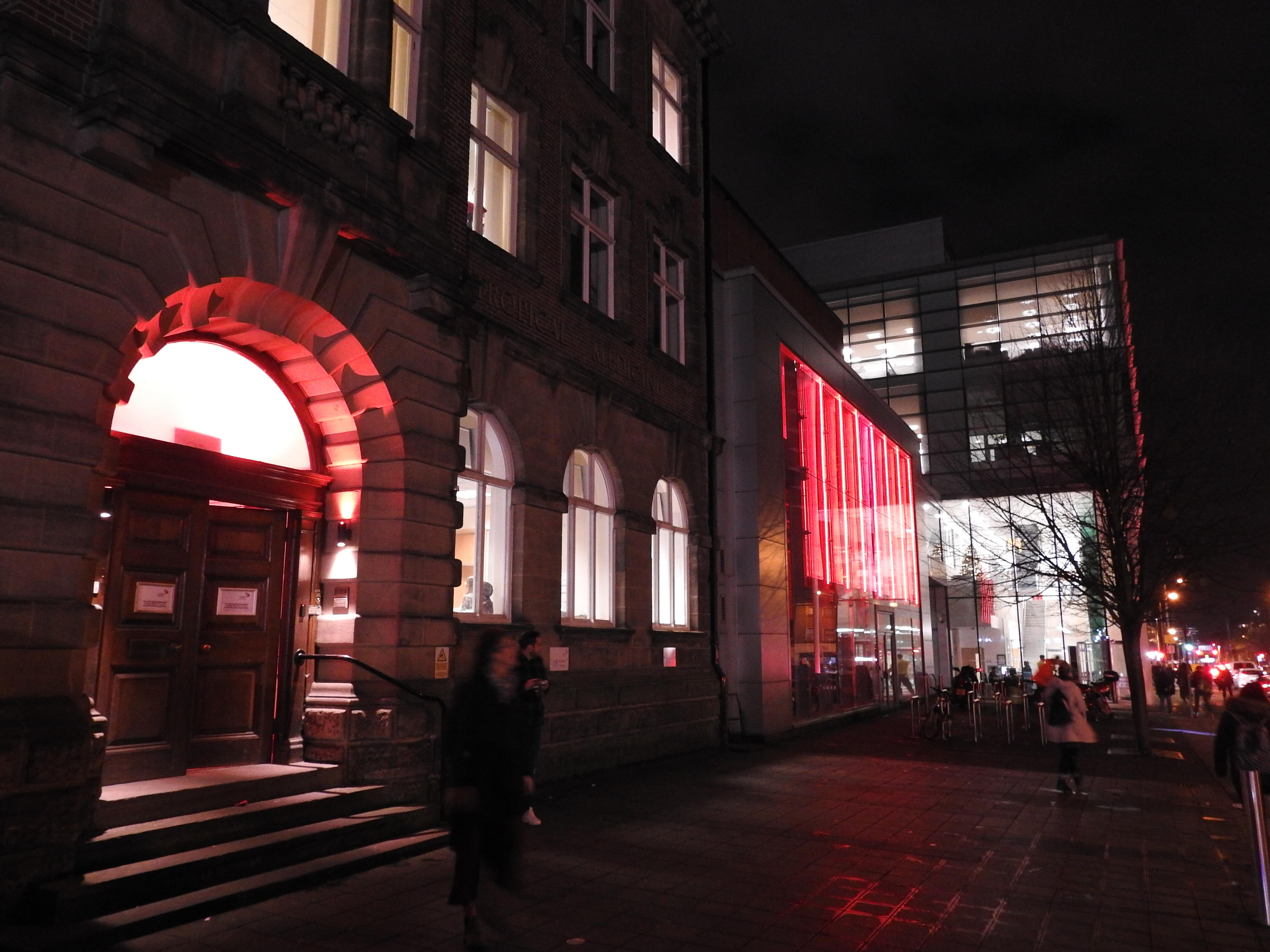
Part of LSTM estates will light up red this week to mark World AIDS Day. LSTM is one of the many well-known landmarks throughout Liverpool’s city region that does so in order to raise awareness and support those who are living with HIV.
The initiative is led by Sahir House and is meant to challenge and remove the stigma that still surrounds HIV and acknowledge the progress around treatment and prevention.
LSTM’s Dr Victoria Watson, who led the initiative within LSTM, said: “It’s great to see this happening and for LSTM to be involved. Across the North West we are seeing a reduction in the number of people newly diagnosed with HIV, however we are still seeing high numbers, about 48%, of individuals diagnosed late. Therefore, we need to increase knowledge and awareness of HIV prevention, testing and treatment and reduce HIV stigma. HIV treatment has come so far in the last 30 years, a HIV positive individual on treatment with an undetectable viral load cannot pass the virus on, with this in mind- if everyone knew their HIV status, we could eradicate HIV globally. The lighting up of LSTM red shows our support to those people living with HIV, and to commemorate those we have lost to HIV.”
Red symbolising the Red Ribbon, a symbol of compassion and support for people living with HIV. By lighting up red participating institutions and organisations are sending out a positive message that they want to challenge and remove the stigma that still surrounds HIV and acknowledge the progress around treatment and prevention.
In Liverpool, LSTM participates in the coordination of the HIV Fast Track Cities initiative that brings together local government, civil society and health services. Liverpool aims to reduce the proportion of residents living with undiagnosed HIV and extend the UNAIDS 90-90-90 target to 95-95-95 through accessible high-quality service delivery, support, information and choices to people living with HIV in our city. We want to make our care pathways stronger, more integrated and eliminate stigma. One way we are aiming to achieve this is through a LSTM funded project which listens and works with local HIV community champions to increase the uptake of HIV testing within communities living in Liverpool using a tailored HIV self-testing distribution model.
Globally, LSTM’s HIV work involves the Zimbabwe based Centre for Sexual Health and HIV AIDS Research (CeSHHAR). conducting rigorous implementation research in HIV and sexual and reproductive health, generating policy relevant evidence on scale up of HIV self-testing, voluntary male circumcision, programmes for HIV positive adolescents and prevention of mother to child transmission. LSTM works in partnership with Unitaid, PSI, WHO and colleagues from LSHTM, UCL and the University of York, bringing together a collaboration of epidemiologists, social scientists, modelers and economists conducting a wide range of HIV research projects
LSTM’s community health systems group has been conducting research on stigma reduction, and on increasing access to HIV self-testing in different low-resource settings including Kenya and Zimbabwe and here in Liverpool. The group is also involved in research on (HIV) treatment adherence and retention in HIV-care.
LSTM continues to work on late-stage HIV-infection with partners at LSHTM, St Georges University of London, National Institute of Medical Research Tanzania (NIMR).
For a comprehensive overview of LSTM’s work in the field of HIV, see the HIV research theme on our website and recently published Annual Report 2019/20 (as of page 39).